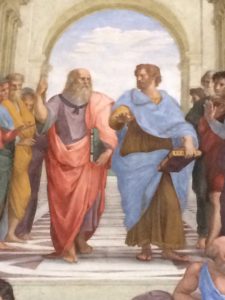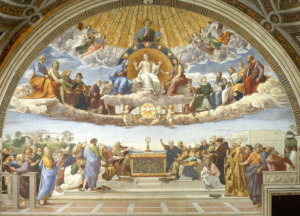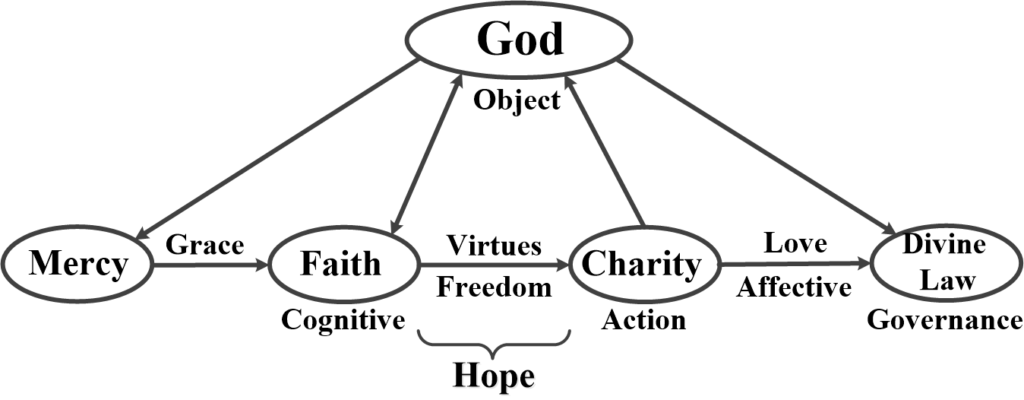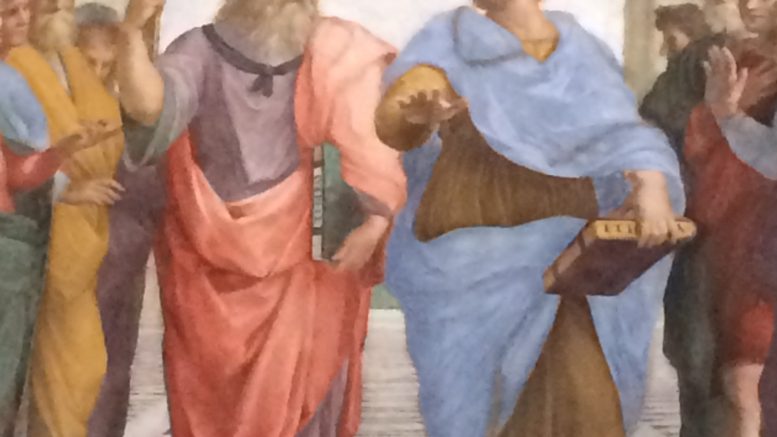The previous article outlined differences in ideas and why they matter, using Virginia’s proposed Equal Rights Amendment. I’ve written more generally in other articles about why ideas matter. They shape our decisions and influence our actions. Our actions form our character, and our character determines who we choose to become. But it all begins with ideas. You produce what you take in.
Today’s article focuses on a tangible outcome from the kind of ideas underlying the above bill. Ideas that focus on ourselves. As always, this article will speak in truth and love. However, those supporting the kind of ideas showcased by this legislation rarely understand this notion. They see an attack on an idea they hold as an attack on them. Such an attitude merely reveals the true nature of their beliefs and values they hold.
The Trigger
I recently attended a conference that brought this thought into focus. A conference I looked forward to attending, and learned much I can use and am grateful for learning. But I found the conference’s environment toxic. Processing the experience took some time, but think I’ve been able to do that. At its core, I think when people hold toxic ideas, they create a toxic environment – whether they mean to or not. They produce what they hold in their heart.
A number of presenters were teachers or journalists. It rarely took them long to belittle others not holding their ideas, with audience acceptance reinforcing such actions.
Those actions showcase an attitude conveyed in James.
“My dear brothers and sisters, how can you claim that you have faith in our glorious Lord Jesus Christ if you favor some people more than others?
For instance, suppose someone comes into your meeting dressed in fancy clothes and expensive jewelry, and another comes in who is poor and dressed in shabby clothes. If you give special attention and a good seat to the rich person, but you say to the poor one, ‘You can stand over there, or else sit on the floor’—well, doesn’t this discrimination show that you are guided by wrong motives?”[1]
The Bullets
While this passage uses an example of rich and poor, other passages state what we can see makes no difference as we all have the same nature.[2] The ideas we choose define us, and those are influenced by their source.[3] Ideas are the issue, not people. Further, there are only two sources, God and man. The source we choose says much about the values we will hold.
God leads toward those things that bring unity and peace—that is, virtue. When man is oriented toward his creator, he fulfills his purpose by becoming good through doing good. Man turned away from God focuses on himself, leading to ideas bringing division and chaos. Those things do not come from God. When man chooses this latter path, he loses his freedom. He becomes a slave, chained by the vices he himself creates.
Man’s Search for Answers
One thing really hitting home was a number of presenters who were broken but had risen above their circumstances. It was inspiring. But given what they had gone through, shouldn’t there be compassion for others? Instead the focus was often on self. It breaks one’s heart to see, but it should be no surprise when man looks to himself for answers.
America leveraged a covenant relationship at its founding, one similar to the covenant between the Jewish people and God at Mt. Sinai. This covenant is one basis for the common bond we share with Israel. The Jews at Mt. Sinai voluntarily recognized God and acknowledged, “All that the Lord has spoken we will do!”[4] But the covenant goes further than that. Each person making this covenant with God also made a covenant with each and every other person present who made that same commitment.
This idea exists in America’s founding. First, sovereignty rests with the people, and not the government. Each citizen makes a covenant promise to every other citizen, and to the ideas underlying the republic. These ideas come from Judeo-Christian principles.[5] Second, there is a promise from the republic to its citizens that it will maintain these principles. That is the purpose of our government institutions, and it is our purpose as citizens to see that it happens.
Two statements stood out from the presentations I attended. The first dealt with education and the second with virtue. It is to those two ideas we move before closing.
Education is Government
This first notion came from two statements. First, government funds colleges. Second, that college is government. This is a pagan idea that I will come back to in the next article.
However, there are several relevant points to be mentioned here. First, we are not born with knowledge. Each generation must learn the things necessary to fulfill our purpose. Therefore we can never rest. Our freedom is never assured. We must always work to retain it, or we will lose it. As our underlying principles have their basis in faith, our education must be one of both faith and reason.
Why Faith and Reason?
Such an education is necessary because there is a difference between a covenant relationship and a mere contract. We look to self-governance, and that requires understanding the nature of our society’s founding relationship. We’ve made commitments to other citizens and to a set of principles incorporated into our republic derived from God’s law. These include our equality of nature and set of negative natural rights coming from God. Rights that we will only benefit from when turned toward Him.
Within a self-governing society government exists to serve its people. The consent of the governed is required. Roman law picked up this idea later, that what touches all in similar fashion shall by all be approved. The Jewish people pledged themselves to God and consented to His law. We, in similar fashion, have pledged ourselves to ideas underlying our republic, principles derived from God’s law and our natural rights. Not so much God’s direct rule, but rather the rule of law. Law that is based on fulfilling our purpose by recognizing our shared common nature, the rights inherent in that nature, a shared commitment to the common good, and fulfilling our purpose by doing and becoming good.
This idea allows us as a single people to agree to a set of common principles while still allowing for differences in beliefs for how we follow God.
What Source Virtue?
The second idea came from another presentation whose topic was virtue. Specifically twelve cardinal virtues derived from the works of Aristotle. There is just one problem. Aristotle was a pagan. Yes, he wrote about virtue as did his teacher Plato, but it was virtue in isolation within man. What do I mean?
Rafael’s Lessons
 Consider the Sistine Chapel. Several rooms contain paintings by Rafael. In one room is The School of Athens depicting the great Greek philosophers. At the center are Plato and Aristotle, shown to the left. Directly opposite is The Disputation of the Holy Sacrament depicting; God, Christ, Joseph and Mary, the Apostles, and some of the saints, martyrs, and popes. See below. The two paintings represent reason and faith, respectively. Raphael is making several points by his paintings. These include; there are differences between God and man, and between Christian faith and pagan thought.
Consider the Sistine Chapel. Several rooms contain paintings by Rafael. In one room is The School of Athens depicting the great Greek philosophers. At the center are Plato and Aristotle, shown to the left. Directly opposite is The Disputation of the Holy Sacrament depicting; God, Christ, Joseph and Mary, the Apostles, and some of the saints, martyrs, and popes. See below. The two paintings represent reason and faith, respectively. Raphael is making several points by his paintings. These include; there are differences between God and man, and between Christian faith and pagan thought.
But even within pagan thought, there is one closer to the truth—Plato. That is why Plato points to the heavens while Aristotle extends his hand over the earth. Plato was also a pagan, but he at least acknowledged God. I would go as far to say that he attempted to understand God. However, that understanding was achieved by trying to incorporate God into pagan thought instead of simply accepting God’s word as truth.
The Cardinal Virtues
Thomas Aquinas wrote there are three cardinal virtues; faith, hope, and love. There is a relationship between these virtues, they all orient us toward God. Further, the Greek word for this type of love—agape—is translated as both love and charity. The first translation refers to love’s affect and the second to its actions. From these notions, along with virtue and free will (freedom), the following model can be derived.[6]
 All other virtues are derived from these three. They end in actions done out of love for another, simply because we share the same nature. They thereby fulfill divine law by loving God and our neighbor.
All other virtues are derived from these three. They end in actions done out of love for another, simply because we share the same nature. They thereby fulfill divine law by loving God and our neighbor.
The presenter did speak to the virtue of love, and used the example of a caring servant. It was an example of agape love, but again the basis was simply the servant. The idea began and ended with man. How do I know? Faith was not mentioned at all, even as a virtue.
Healing
I appreciated many of the observations given during this second presentation. You become what you write, because your writing writes you. It shapes your ideas—so we must choose carefully. My hope is maybe this article will cause some to pause and consider the ideas they hold. The position doesn’t matter, if God is omitted we are left to ourselves and will fall short. Our purpose is to serve others by helping where we can, however we can. It is our calling. No one else. It is not the government’s. It is not even the church’s, although the church is to play a role in educating us about what God asks of us—what it truly means to be righteous. To do that we must meet someone where they are.
So once again. The ideas we choose determine who we become. Who do you want to be?
As this article is being finished, Governor Northam is being pressured to resign and January’s jobs report far exceeded anyone’s expectations. Two final questions. Why should we be surprised at a man’s character who supports; discrimination through creating rights for people on the basis of what they look like, and the killing of babies? And what does that say about the people who voted him into office? Compare this to the job and wage growth in today’s report. Much of that growth is helping middle America, blue collar workers. Then ask yourself, whose ideas are working? Who’s helping their neighbor?
[1] Today’s Parallel Bible: NIV, NASB (Updated), KJV, NLT, Zondervan, 2000. James 2:1-4, New Living Translation. All readings are from the New American Standard Bible unless otherwise noted.
[2] For example, Galatians 3 and 4.
[3] See Galatians 5.
[4] See Exodus 19:8.
[5] Wolf, Dan, A Handbook of Natural Rights, Living Rightly Publications, 2018.
[6] Ibid, p. 6.




